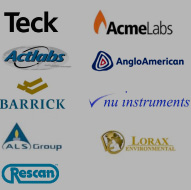 Natalie Szponar
Natalie Szponar
PhD student
University of Toronto
I am passionate about how different geochemical tools can be used to understand Earth and environmental processes. I completed a BSc specializing in aqueous geochemistry at McMaster University and an MSc in stable isotope geochemistry at Memorial University of Newfoundland. My MSc thesis involved the investigation of carbon cycling in alkaline springs at a continental site of present-day serpentinization, the Tablelands in Gros Morne National Park. This research utilized stable isotopes and biogeochemical evidence to understand the processes involved in the production of hydrocarbon gases and to characterize the microbial community that exists in these environments. This research resulted in the first published dataset on the geochemistry of hydrocarbon gases at the Tablelands. Sites of serpentinization are also considered Mars analogue sites and the results of this study have been incorporated into the NASA database for Mars analogue sites for helping plan future space missions.
After completing my Masters, I began working as an environmental consultant. I was excited to work on projects where I could apply my background in geochemistry and isotope forensics to characterize source(s) of contamination.
After almost five years working in environmental consulting, I began a doctoral degree at University of Toronto under the supervision of Dr. Bridget Bergquist. I am currently working on a study involving the use of novel passive air samplers (PAS) to measure gaseous elemental mercury in the atmosphere across Ontario. Our research goals are to establish the suitability of the PAS for measuring atmospheric mercury concentrations and stable mercury isotopes. We will also be deploying the PAS in Peru in areas of artisanal and small-scale gold mining to assist in the country’s efforts to understand the effects of these mining operations on atmospheric mercury.
I am excited about being part of the growing field of research in metal stable isotope geochemistry and the opportunity to contribute to our understanding of the mercury cycle with my research.
My experience in MAGNET has been in invaluable. MAGNET has provided a platform for us enhance our skills in geochemistry in academia and in industry and created a strong network of researchers and industry partners. It has been inspiring being amongst such creative and accomplished researchers. I feel that I have learnt something from each MAGNET trainee and I am excited to see what the future brings for everyone in the program.
Last updated May 2018


 Catherine Armstrong
Catherine Armstrong Laura Bilenker
Laura Bilenker Priyanka Chandan
Priyanka Chandan Carol Cheyne
Carol Cheyne June Cho
June Cho Sarina Cotroneo
Sarina Cotroneo Jamie Cutts
Jamie Cutts Fiona D'Arcy
Fiona D'Arcy Ashley Davidson
Ashley Davidson Nicolas Estrade
Nicolas Estrade Anaïs Fourny
Anaïs Fourny Evelyn Frères
Evelyn Frères Elizabeth King
Elizabeth King Alexander Lemieux
Alexander Lemieux Miling Li
Miling Li Marc-Antoine Longpré
Marc-Antoine Longpré Gregor Lucic
Gregor Lucic Kalina Malowany
Kalina Malowany Eduardo Mansur
Eduardo Mansur Jill McDermott
Jill McDermott Rhy McMillan
Rhy McMillan Aleksandra Mloszewska
Aleksandra Mloszewska Nichole Moerhuis
Nichole Moerhuis Emily Mullen
Emily Mullen Genna Patton
Genna Patton Jean-David Pelletier
Jean-David Pelletier Elizabeth Phillips
Elizabeth Phillips Nabila Rahman
Nabila Rahman Lindsay Reynolds
Lindsay Reynolds Luiz Felipe Salim Amaral
Luiz Felipe Salim Amaral Cheyenne Sica
Cheyenne Sica Elliott Skierszkan
Elliott Skierszkan Kate Smith
Kate Smith Natalie Szponar
Natalie Szponar Victoria Tweedie
Victoria Tweedie Tom Ver Hoeve
Tom Ver Hoeve Clara Waelkens
Clara Waelkens Nicole Williamson
Nicole Williamson Anne Wozney
Anne Wozney Wang Zheng
Wang Zheng


 Site by Sprout Creative
Site by Sprout Creative